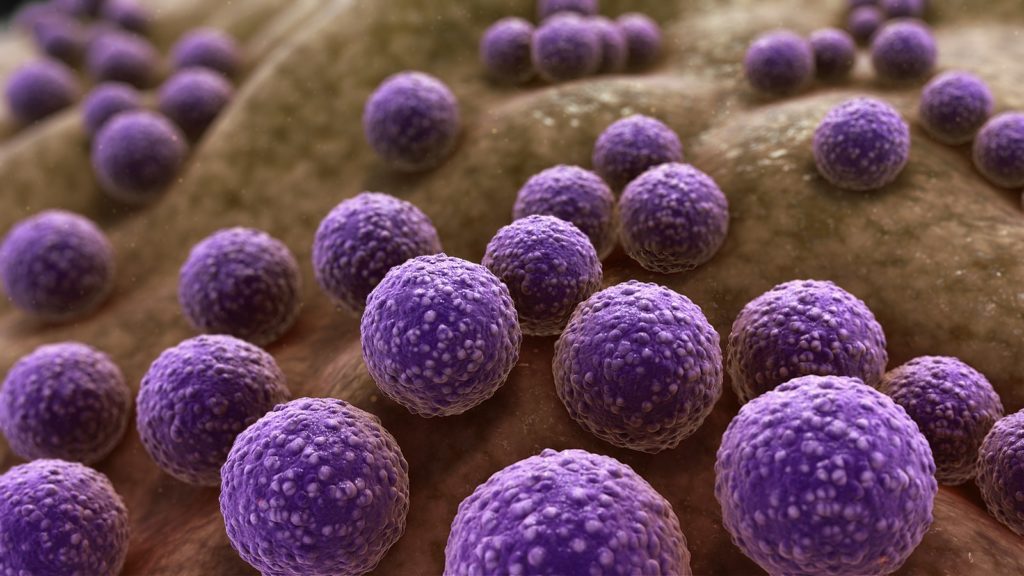This study will evaluate immune function in people with a known or suspected immune disorder. It will determine participants’ immune response to vaccines by measuring blood antibody levels after vaccination.
Official Title
Evaluation of Antibody Production in Primary Immune Disorders
Conditions
– Immunologic Disease
Study Type
Observational
Study Design
Natural History
Further Details
Patients enrolled in a NIH protocol involving immune reconstitution (bone marrow transplantation or gene therapy) for a known or suspected primary immune disorder may be eligible for this study. Participants may be asked to have more than one vaccine, based on their age, use of IVIG, past immunization history and underlying immune problem. The possible vaccinations include: – Rabies vaccine- Diphtheria and tetanus booster- 23 valent pneumococcal polysaccharide vaccine- Pneumococcal 7-valent conjugate vaccineThe diphtheria, tetanus, pneumococcus and rabies vaccines are approved by the Food and Drug Administration (FDA) and used routinely to protect against disease. Study participants will have a blood sample drawn before vaccination. The number of additional samples collected will vary according to the vaccines administered; 1 for rabies; 1 for tetanus; and 1 to 2 for the pneumococcal vaccines. Each sample will be up to 5 teaspoonfuls. Participation in the study may last up to a year, depending on the blood sampling scheduling.The purpose of this study is to evaluate antibody responses in patients with known or suspected primary immune disorders. Up to 50 subjects per year are expected to be enrolled. It is anticipated that subjects will be referred who have been evaluated by any of several investigators at NIH studying inherited disorders of the immune system under their own protocols. This will be an open label prospective study investigating the functional status of the adaptive immune system. After giving standard vaccines, we will test specific antibody production. The vaccines include licensed and universally mandated diphtheria and tetanus toxoid, two licensed pneumococcal vaccine formulations, and the rabies vaccine licensed in 1997 (not the formerly available reaction-prone formulation). To measure these specific antibody levels, we will obtain peripheral blood samples from subjects before vaccination and at specific time intervals after vaccination. Antibody titers will be obtained from commercial labs, the Maryland State Lab (for rabies titers), or CLIA approved labs. Since antibody production depends on both B cells (which secrete antibody molecules) and T cells (which provide helper factors for B cells), the vaccinations selected for use will tell us about the function of multiple lymphocyte lineages and define a range of functional defects in immunity. Subjects may be offered one or more of the vaccines based on available information about their exposure history and their immune status, and the vaccines may be offered sequentially or in combination to shorten study time and streamline blood samples required.
Study Start
Eligibility & Criteria
Genders Eligible for Study: Both Criteria INCLUSION CRITERIA:Individuals being evaluated by NIH investigators for known or suspected primary immune disorders.Patients undergoing immune reconstitution in separate NIH protocols for the treatment of their primary immune disorder (including bone marrow transplantation or gene therapy).EXCLUSION CRITERIA:HIV infection.Active malignancy.Immunosuppressive therapy, other than steroids.Symptomatic cardiac disease or ongoing treatment for same.Pregnant or lactating women (due to restrictions on use of vaccines).Surgery during the two weeks prior to entry.Serious, ongoing, or uncontrolled infections.Platelet count less than 40,000/micro L.Any other major illness which, in the investigator’s judgment, may substantially increase the risk associated with the patient’s participation in this study.History of previous systemic reaction to the particular vaccine product being considered for administration.Known immediate hypersensitivity reactions to egg protein will make a patient ineligible for rabies immunization.
Total Enrolment
50
Contact Details
[1] National Human Genome Research Institute (NHGRI)National Human Genome Research Institute (NHGRI), 9000 Rockville Pike, Bethesda, Maryland
All content and media on the HealthEngine Blog is created and published online for informational purposes only. It is not intended to be a substitute for professional medical advice and should not be relied on as health or personal advice. Always seek the guidance of your doctor or other qualified health professional with any questions you may have regarding your health or a medical condition. Never disregard the advice of a medical professional, or delay in seeking it because of something you have read on this Website. If you think you may have a medical emergency, call your doctor, go to the nearest hospital emergency department, or call the emergency services immediately.







